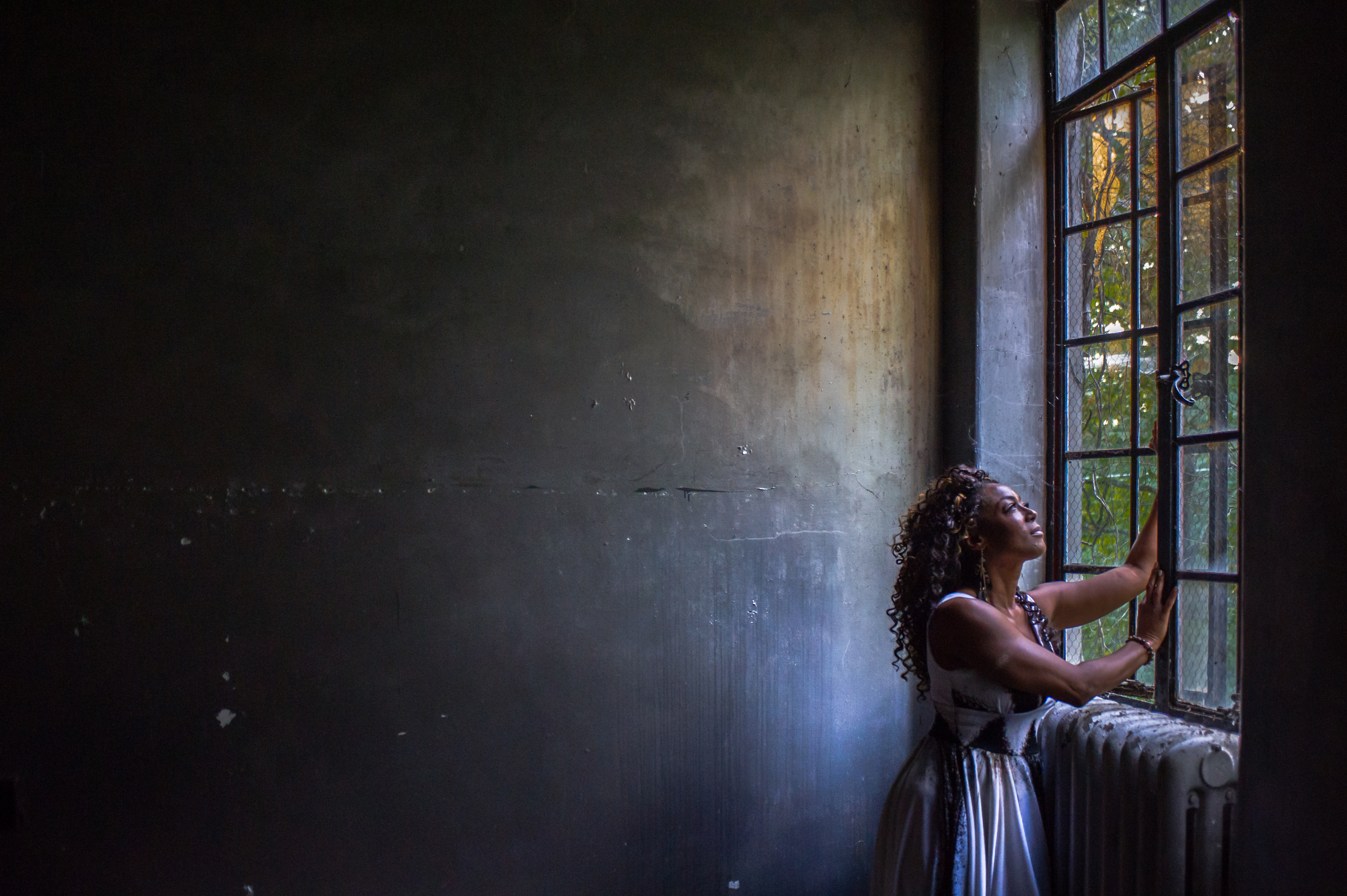In 1991, I received an honorable discharge from the United States Air Force after four years of service. My military career ended immediately after the first gulf war (Operation Desert Storm), so I was considered a wartime veteran. For four years, I had been an immigrant serving in the US military and was very proud of that. I enlisted in New York City and was sent to Texas for training then stationed in the Midwest town of Rantoul, Illinois.
Until then, my stay in NYC had exposed me to Americans who were regularly interacting with people of various races and ethnicities. Most of what I saw on the news and in movies about American culture highlighted distinct differences between people mainly by their race. The underlying message was that blacks who were born in America were generally troubled, uneducated, devastatingly poor, inherently criminal and dangerous. While whites in America were generous, educated, almost always had the financial resources they needed and could be trusted to do the right thing. In contrast to black Americans, white Americans were generally presented as “salt of the earth.”
Small Town American Hate
My education about racism in America began when I left the military and moved into a nearby small town. While living in small-town America, I was first called the n-word and on several occasions in anger. I was called this by a woman happily greeting me as she embraced me. I was called this casually in passing. And when I wasn’t called the n-word, my race was mentioned in conversations where there was no need for distinction. I was often shocked by how much those around me emphasized my race.
Another realization was that numerous whites in the Midwest had many of the same faults that were unquestionably regarded as only inherent to blacks. Such thoughts never occurred to me because the images I saw of white Americans never highlighted these things. I met whites who cycled through the prison system for robbery, drug possession, DUIs, and more. Before that, I hadn’t been aware of any black person that I knew who had been in these situations. I was appalled. I began to wonder why stories were told as they were. Why were whites frequently presented in a positive light while blacks were presented as dark, threatening images?
The Attack
But the most damaging lesson I learned was from one truly terrifying experience. At twenty-three, I briefly dated a white man, John, who was five years my senior. John had a brother who was three years his senior. I’ll call him Bill. Bill seemed to think that I should have chosen to date him instead of John. After several stern warnings from John, Bill appeared to quit his inappropriate behavior.
About a month later, John asked me to help Bill with a task. Bill was illiterate, and the job required reading and following instructions. Before long, Bill had become verbally abusive. When I tried to leave, he grabbed me from behind, pinning my arms into my chest, then began to shove me around. I was 5’2” and 125 pounds while Bill was 6’ and over 200 pounds. During the struggle, Bill rammed me headfirst into a wall so that my neck was twisted, my chin was pinned to my chest, and my head was wedged into the wall closing my airway. I… could… not… breathe.
“I can’t breathe,” both George Floyd and Eric Garner pleaded. “I can’t breathe.” How many countless times were these words spoken before social media exposed the horrific state of race relations in the US to the rest of the world. Not only could I not breathe then, but I find it difficult to breathe now, thinking of lives stolen from too many black Americans.
As I recall, all those years ago, when I struggled to gasp for air, I realized that if I didn’t stop resisting, Bill would break my neck. He eased off slightly, and I got one hand free long enough to grab at something nearby. I jabbed at him with the tool, and finally, on my third jab, it broke his skin and startled him, so he let go. I ran out of the apartment, sobbing and screaming. I was panicked, disheveled, and traumatized when I called the police feeling without hesitation that they would rescue me.
But Who Do *I* Call?
I grew up as a child of police officers and had spent a lot of time around law enforcement. It was usual for me to be picked up from school in squad cars by my parents’ colleagues when they were unable to make it there by the end of the school day. So, I had developed a high level of trust and faith in police officers.
Since Bill had run off before the police arrived, an officer took his description and caught him about a mile away. The officers were all white males. They brought him back to the apartment and began to take his statement a few yards away while one young officer took mine. I was still sobbing and struggling to describe what had occurred when a senior officer discouraged me from pressing charges against Bill. He threatened that if I did, they would charge me too. I was even more terrified.
After convincing me that it would be detrimental to press charges, the senior officer said something that made me feel endangered, broken, and valueless. He said, “If you stayed with your own kind, you wouldn’t have to worry about this; now would you?” I have never forgotten those words and the deep sense of worthlessness I felt at that moment. In my already vulnerable state, his words crushed me, and I felt something break inside me.
Since then, I’ve come to realize that had I been a blond-haired, blue-eyed 5’2” 125-pound white woman and had my assailant been black, I would have been seen as having more value. My assailant might have died that day at the hands of the police. I have also come to realize that one biased decision could have ruined my future. With one flip decision, this officer could have further abused his power and thrown me into the prison pipeline.
At the Mercy of My Assailant
Two years later, I discovered that the officer had documented the incident with me as the suspect. I was devastated all over again. I became aware of the report because I was applying for an apartment and was denied.
To clear this up, I had to locate my assailant who had since asked for my forgiveness. He admitted to the apartment manager that the report was untrue. The apartment manager still did not believe me. So, I went to the police chief and asked about the report. The young officer who had been on the call (which was one of his first), remembered the incident and went with me to the apartment manager and corroborated my story.
The report was later corrected, and the department fired the senior officer who wrote it. From these incidents, I learned how persistently devalued blacks are and how dangerous it was for me to be a black woman living in America.
My Seat at the Table
Often the people I met in the Midwest had very little education and exposure to the world outside their communities. Yet, several years later, when I became a corporate employee, I again experienced clear racial bias. I worked for a large corporation where every month we would have themed meetings. One February, our team met to discuss our monthly theme. We had already used Valentine’s Day as a theme in previous Februarys, so we met to discuss other ideas. We were all stumped, and it occurred to me that it was Black History Month. As an immigrant, I had always considered Black History Month to be a celebration of American history to highlight the accomplishments of black Americans.
I had previously seen people of every ethnicity recognize special dates like St. Patrick’s Day. It was shocking to me when I was rebuffed by the team (all of whom were white, including my boss, who was white-Hispanic) for my suggestion and told that we needed to be diverse. I was briefly confused because I thought that diverse and inclusive were precisely what I was being.
I accepted the explanation but remained confused. Then in May, the team chose Cinco de Mayo as the theme for that month’s meeting. I was no longer confused. It finally dawned on me how thoroughly ingrained it was in the American mindset to see black Americans as secondary, separate, and other. Leadership may have felt they were diverse by allowing me a seat at the table, but that was as inclusive as they intended to be. It could not have been clearer. Having a seat at the table was not a sign that there was room for my voice.


